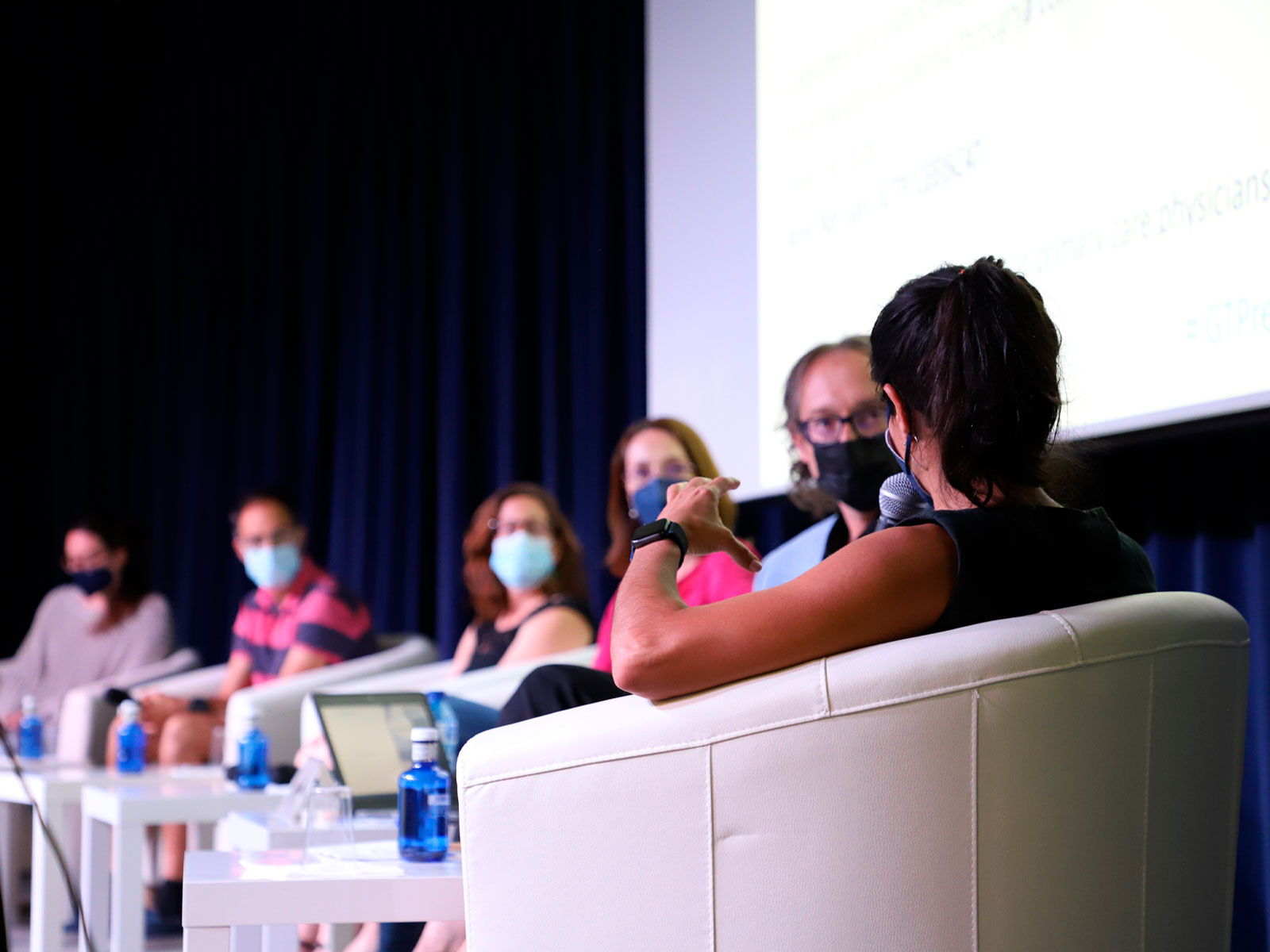The IGTP celebrates its Scientific Retreat in a mixed format focused on research and innovation
2021 Second IGTP Scientific Retreat showed the Can Ruti research community optimistic and calling for structural changes in public research as society emerges from the greatest pandemic in living memory

The scientific organizers proclaimed the second IGTP Retreat (Research and Innovation across the Can Ruti Campus) a resounding success and another example of how the research community rapidly adapts to every new situation. it was generally agreed that the sense of community was strengthened despite the networking limitations of the mixed format.
The director of the IGTP Jordi Barretina and Julia García-Prado, the Scientific Director, opened the event on Monday 14 June at 15.00. In the opening remarks they reminded everyone of how the whole community on campus had re-geared itself from March 2020 onwards to tackle the challenge of the covid-19 pandemic. They continued with a summary of competitive funding achieved from both usual and special covid-19 calls and a summary of strategic networks and business development activity together with the growing scientific activity in the Campus.
Dr Aleix Prat, Head Medical Oncology at the Hospital Clínic in Barcelona and leader of the Translational Genomics and Targeted Therapies Group at IDIBAPS, gave an inspiring keynote talk on using precision oncology to demonstrate his vision for the future of personalized medicine in all fields. He called for academia to leverage its tremendous data power and lead in translational research through strategic alliances with pharmaceutical companies, that carry most of the current research.
The retreat continued with 4 sessions on strategic research priorities as defined by Horizon Europe and the IRISCAT network, each featuring two strategic talks and 3 pre-recorded young researchers' talks with discussion sessions. The four main areas were: Personalized Medicine, Advanced Therapies and Innovation, Rare Diseases and Responding to Epidemics in Public Health. All four areas are particularly important to the IGTP community and many examples of cutting-edge research were shown during the sessions.
Two further sessions featured a round table to reflect on the covid-19 pandemic and its effects on research now and in the future; and a second one to present five successful start-up companies on the campus and illustrate how, when and why research leads to founding a company.
Throughout the retreat, some of the themes from the keynote talk were echoed. Public research and healthcare have reacted magnificently to the pandemic and been fundamental in lessening its effects on the population. Academia has shown its power to react and meet the needs of society and should be provided with the capacity and resources necessary to continue to do so. More work must be done to test biomarkers the way drugs are tested and to push new discoveries into to clinical practice faster.
"It is not easy to organize and attend an event of this nature with the demands of day to day research, but it is of enormous benefit to our research community to take a day and a half to reflect on events, share our success stories and reaffirm our values for future strategies," says Julia García-Prado, Scientific Director of the IGTP and Group Leader at IrsiCaixa. "The strength of public health research lies in our diversity, multi-disciplined teams and work alongside healthcare professionals and this is a chance to reflect, celebrate our work and create new collaborations."
